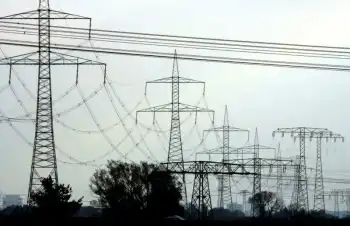Germany seen missing Kyoto due to lenient CO2 plan
The comment by Franzjosef Schafhausen, head of the government's climate working group, comes after Germany sent its national emissions plan (NAP) to Brussels on March 31.
"It is not sure that Germany will reach its Kyoto target as the (more lenient) NAP targets (for the industrial and energy sector) demand for more action from the transport and household sectors," said Schafhausen.
"If all sectors continue to emit as much CO2 as in recent years, we will miss our (Kyoto) target," he said at an energy forum at the Hanover engineering trade fair.
The plan, which aims for a cut in industrial carbon dioxide emissions to an annual average of 503 million tonnes in the period 2005-2007 and to 495 million by 2008-2012 from a current 505 million, is less stringent than an earlier proposal by Green party-led environment ministry.
Some 2,419 German industrial and energy sites will from next January take part in the European emissions trading scheme, which is the centrepiece of the EU's Kyoto Protocol efforts.
Firms unable to keep within their CO2 caps will have to buy extra emissions permits from companies that end up within their targets, thereby creating a market incentive to cut emissions.
Under the 1997 Kyoto Protocol, Germany targets a reduction of the six so-called greenhouse gases, including CO2, by 21 percent by 2008-2012 compared to 1990.
Schafhausen said recent data revealed that there was a strong upwards trend in CO2 output in Germany's energy sector, while the industrial sector revealed a decline since 1999.
CO2 emissions by households rose or fell depending on weather conditions, while emissions by the transport sector were still significantly higher than in 1990, he said.
Brussels has until the end of June to review Germany's national emissions plan and some analysts have said it could reject Berlin's targets as too lenient.
Related News

How Should California Wind Down Its Fossil Fuel Industry?
LOS ANGELES - California’s energy past is on a collision course with its future. Think of major oil-producing U.S. states, and Texas, Alaska or North Dakota probably come to mind. Although its position relative to other states has been falling for 20 years, California remains the seventh-largest oil-producing state, with 162 million barrels of crude coming up in 2018, translating to tax revenue and jobs.
At the same time, California leads the nation in solar rooftops and electric vehicles on the road by a wide margin and ranking fifth in installed wind capacity. Clean energy is the state’s future. By law,…





